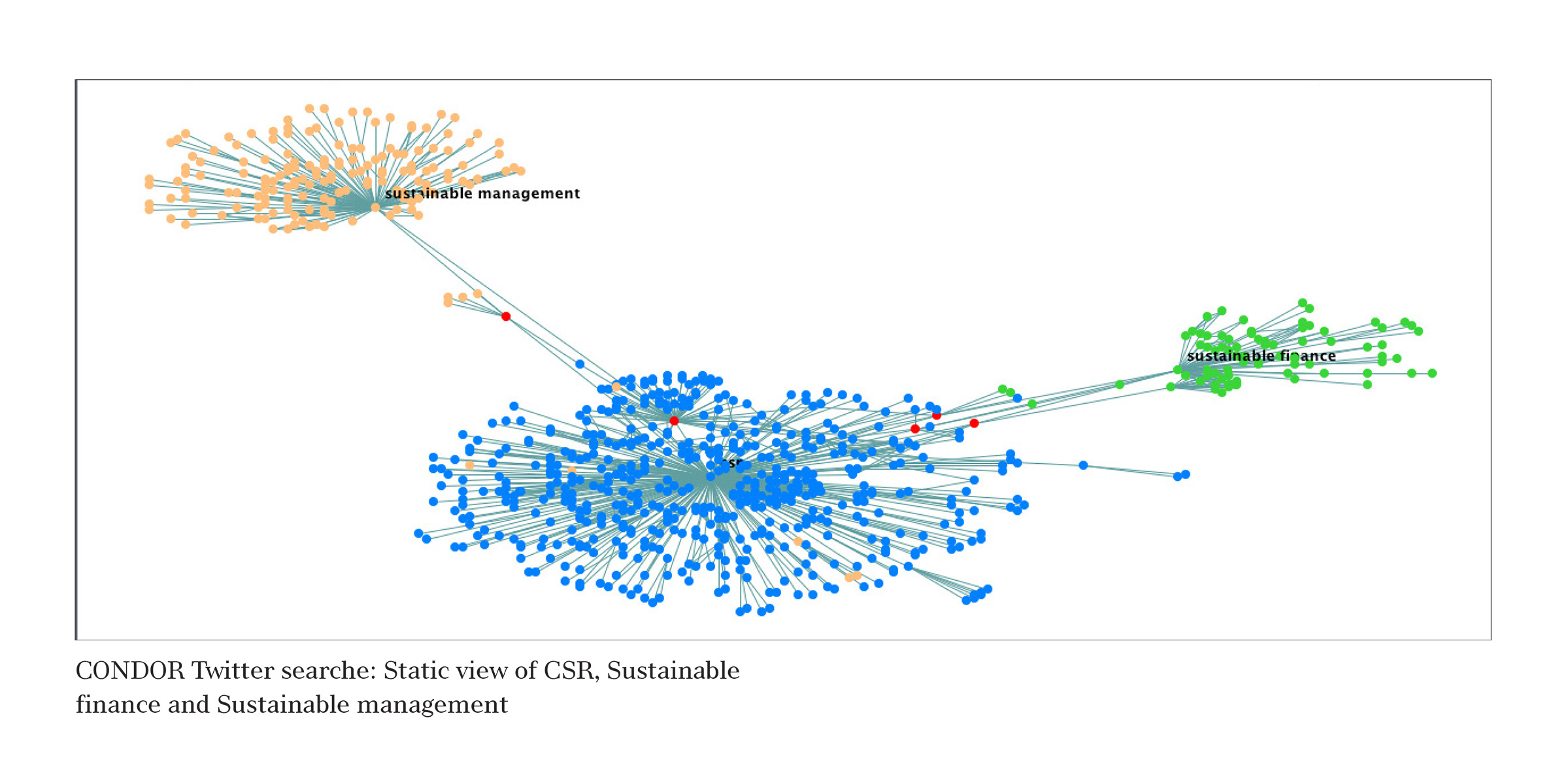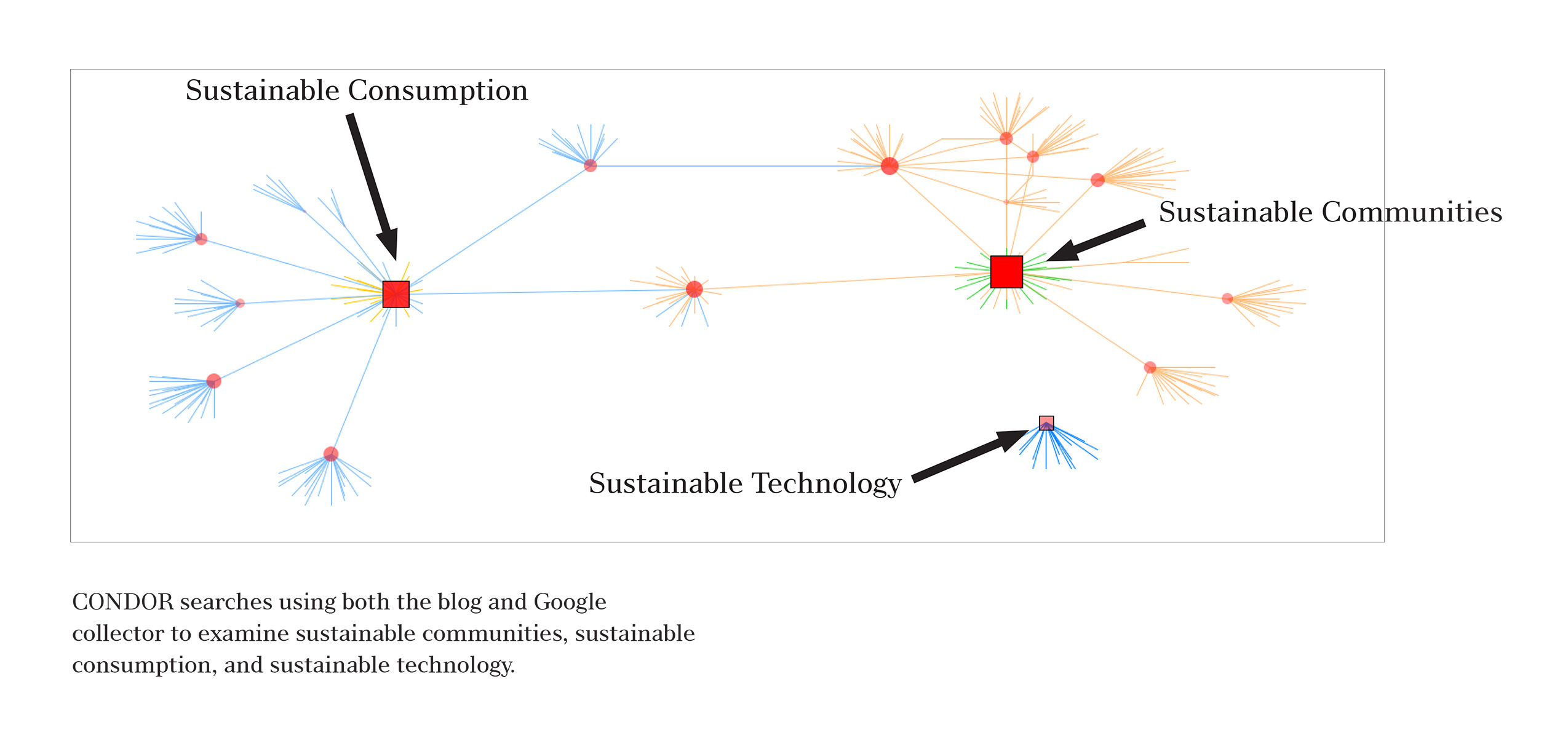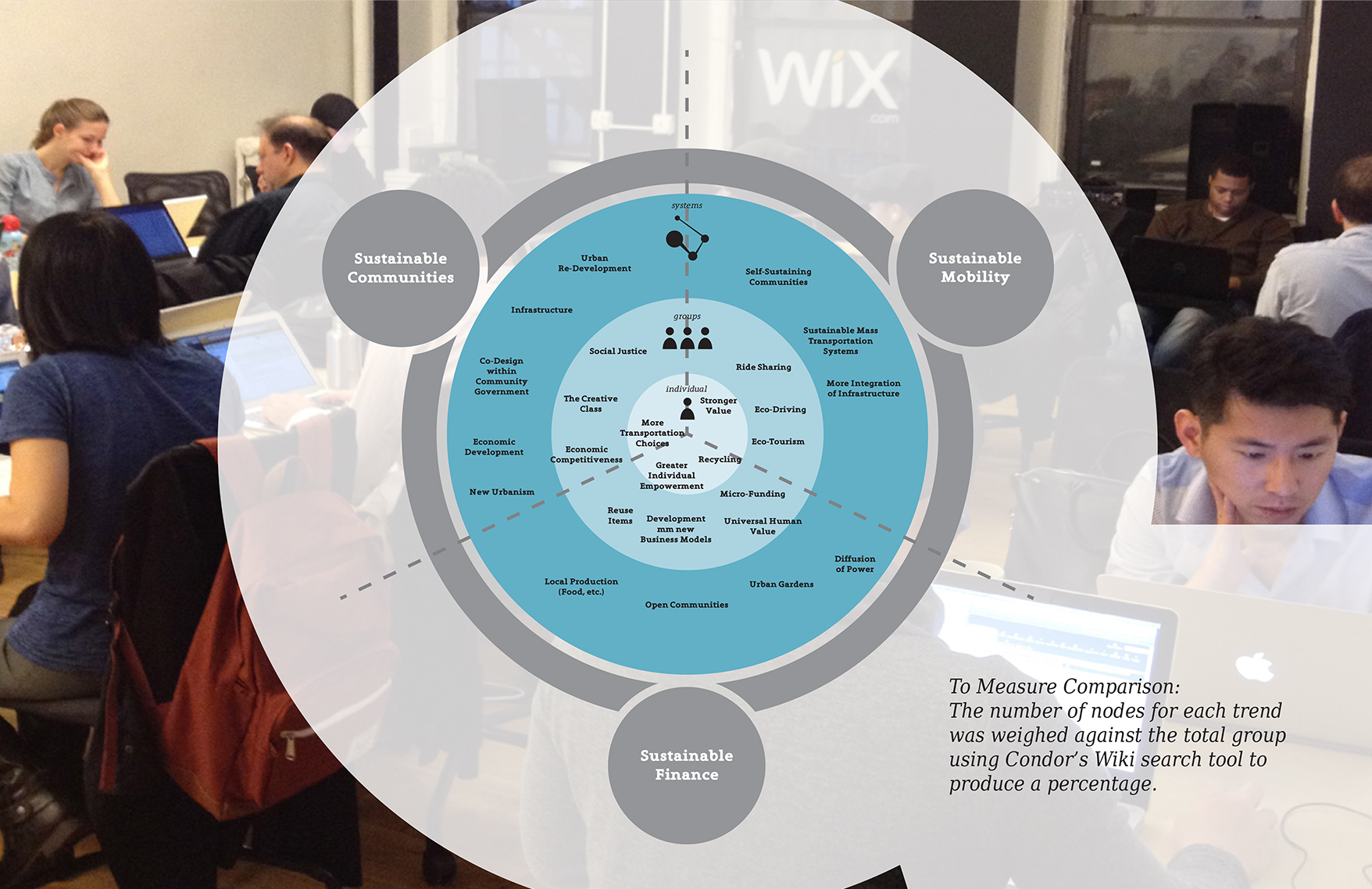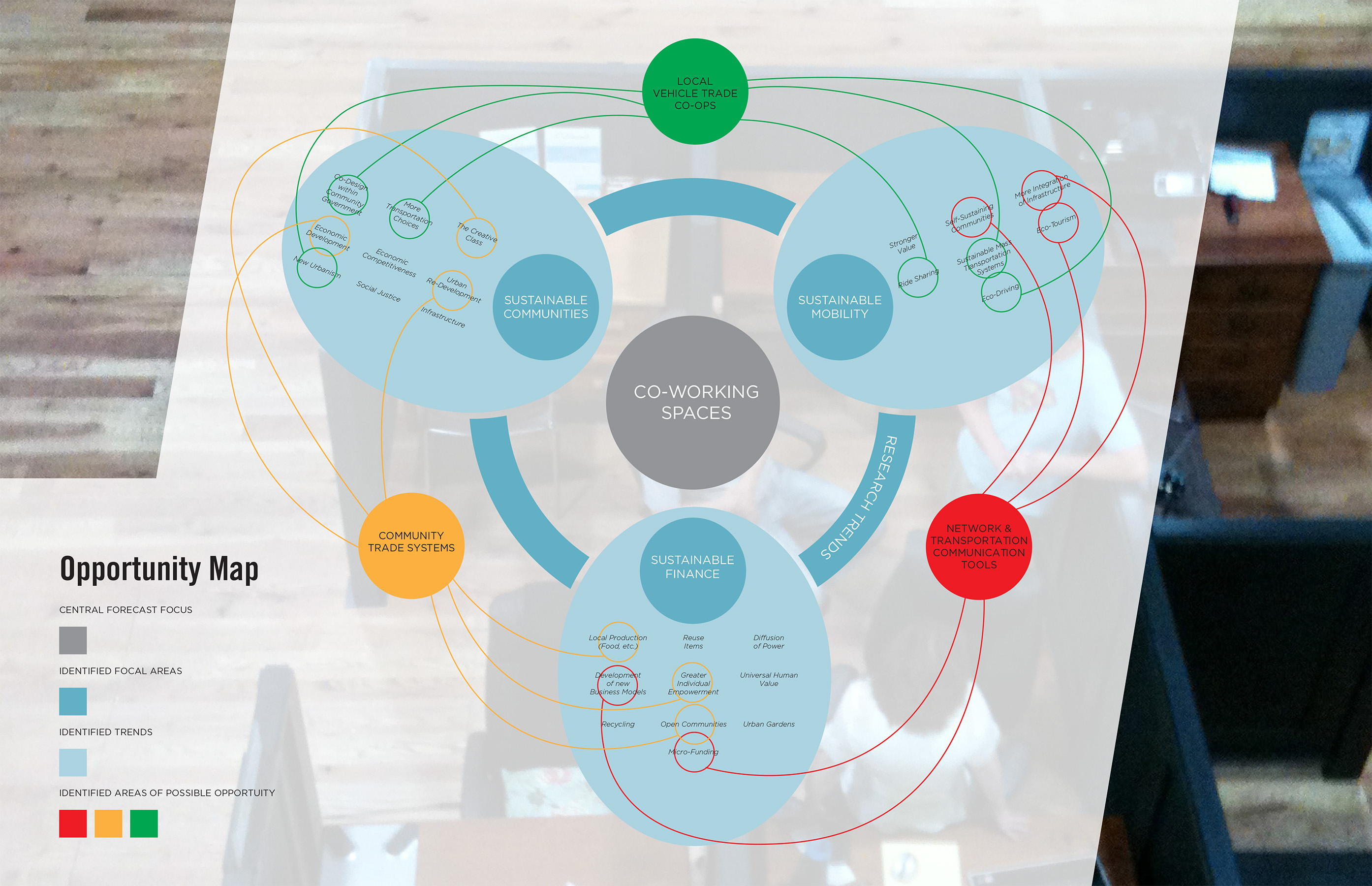THE FUTURE OF SUSTAINABILITY


CHALLENGE
In the Fall of 2012 I took part in MIT’s COINs Seminar. It was a research course in partnership with MIT, SCAD, The University of Cologne in Germany, and Alto University in Finland. The course is run by MIT’s Center for Collective Intelligence director Peter Gloor, a research scientist studying big data and Collaborative Innovation Networks (COINs). The team that I joined was comprised of three students from Alto, one from Cologne, and two from SCAD (including myself as one of those two).
For this project, my team worked with World Wildlife Fund Switzerland to coolhunt for the next big emerging trends in sustainability. Coolhunting, as I define it, is a technique of using big data for social network analysis (SNA) and digital ethnography to analyze and synthesize information. The team utilized a variety of tools starting with automated SNA software called Condor, followed by contextual deep dives of the net, building systems maps to identify patterns and trends, and affinity mapping to identify overlaps and emerging connections.
Initially, we focused on six areas supplied by WWF Switzerland: Biodiversity, Education, Sustainable Housing, Sustainable Mobility, Sustainable Communities, and Sustainable Finance – by using SNA we narrowed our macro focus down to the later three. From there we took deep dives to understand the nature of the information and discover current and emerging trends. As a team our personal goal was to discover a nexus between the three areas; in the end, that became coworking and its diffusion as a trend and industry.
FOCUS AREAS
Social Network Analysis
Trend Research
Insight Development
COLLABORATORS
Peter Gloor – MIT
Núria Gómez – University of Cologne
Faraz Khan – Alto University
Chris Miller – SCAD
Farid M.Sadeghi – SCAD
Damian Oettli – WWF Switzerland
Ingrid Schembri – Alto University
Pia Tamminen – Alto University


